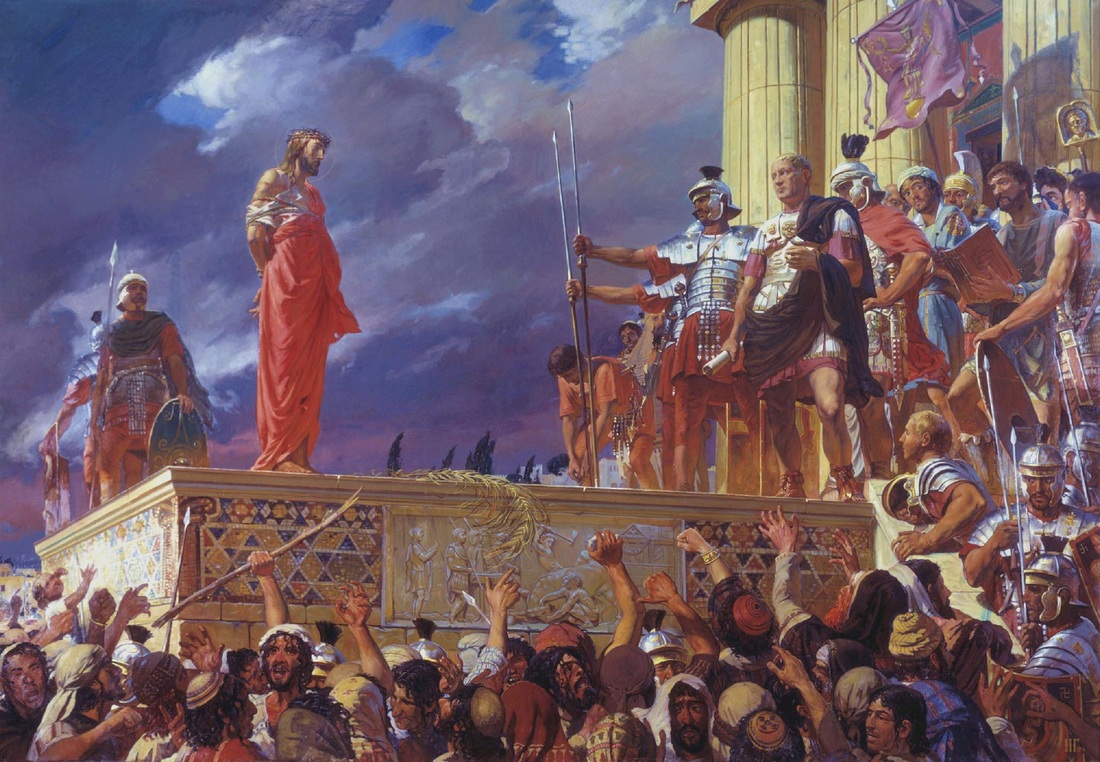Some of you have read this already, it was published in the Fall 2020 Newsletter. My concerns were not about the election, that was already over (though contested). I wrote it because of the times that were to follow—times that have arrived much sooner than I expected.
We’re all familiar with Judas the Betrayer. But there is another Judas that Scripture warns us about.
The first century A.D. was a tumultuous time in Israel. Civil unrest ruled the day. Roman occupiers ruled their subjects with an iron fist. Capricious laws feigned accommodation with local customs and culture but suppressed true liberty. Taxes were imposed at will. Even sacrosanct temple worship was restricted. After decades of occupation by foreign powers with their puppet kings, God’s people had had enough.
It was during this time that a man named Judas of Galilee rose to prominence. He advocated what would later be called the Fourth Philosophy.
“Judas the Galilean was the author of the fourth branch of Jewish philosophy . . . who, taking with him Zadok, a Pharisee, became zealous to draw [the jewish people] to a revolt. Both said that this taxation was no better than an introduction to slavery, and exhorted the nation to assert their liberty.” (Josephus, Jewish Antiquities)
The other three philosophies of Judaism came from the Sadducees, who opted for cooperation with Rome (and enjoyed its benefits), the Pharisees, who withdrew from politics, and the Essenes, who waited for the Messiah to come and overthrow the Roman occupiers. Judas and his Zealots preached revolution (Acts 5:37), and led the resistance to repel Rome by force.
“The country was in turmoil, each faction longing in a different way for the freedom they desired. To this climate of confusion, hatred, and division, many so-called messiahs came, each preaching his own brand of salvation.”
Ray Vander Laan, The Jewish Revolts
Seeking a Strong Man
It was into this scene that another man from Galilee came: Jesus of Nazareth.
He preached a different philosophy and spoke of a kingdom not of this world. He asserted that he was, in fact, the long-awaited Messiah and proved his divinity through miracles (Acts 2:22). But he was not the strong man people wanted. He did not oust the occupiers. He did not lead a revolt. At least, not as the people thought he would.
It is possible, even common, for God’s people to seek a strong man—one who will resist the tyrant and secure liberty by any means necessary. Christ’s own disciples were confused by his plan for redemption. Most deserted him when he did not take the throne by force.
Christ told his followers that the meek will inherit the earth—a seemingly impossible contradiction. But many misunderstand meekness. It means that you have strength but don’t use it. It is deliberately withheld for a higher purpose. Jesus demonstrated the ultimate act of meekness during his arrest at Gethsemane: “Do you think that I cannot appeal to my Father, and he will at once send me more than twelve legions of angels?” (Matt 26:53)
Christ knew that there was a deeper problem in Israel than Roman occupation, a crueler tyrant than Caesar, and a blessing more sacred than liberty. He went to war not with Herod but with Hell. He sought liberty not from tyrants but from sin. His aim was eternal, a Kingdom that could never be shaken.
There is a time for war (Ecc 3:8). There is a time to defend the oppressed (Prov 24:10-12). But tyranny—whether foreign or domestic—always issues from a people in bondage to sin. As Benjamin Franklin put it, “Either you’ll be governed by God or by God, you’ll be governed!” Liberation from this sort of tyrant is not won through force of arms or human effort. Only the redemptive work of Christ can set the captive free. Only repentance can dethrone this despot. Without the centrality of the gospel, liberty for its own sake becomes libertinism, another form of bondage.
Revolutionary Results
“Then one in the council stood up, a Pharisee named Gamaliel, a teacher of the law held in respect by all the people, and commanded them to put the apostles outside for a little while. And he said to them: ‘Men of Israel, take heed to yourselves what you intend to do regarding these men. Some time ago Theudas rose up, claiming to be somebody. A number of men, about four hundred, joined him. He was slain, and all who obeyed him were scattered and came to nothing. After this man, Judas of Galilee rose up in the days of the census, and drew away many people after him. He also perished, and all who obeyed him were dispersed. And now I say to you, keep away from these men and let them alone; for if this plan or this work is of men, it will come to nothing; but if it is of God, you cannot overthrow it—lest you even be found to fight against God.’” (Acts 5)
Judas’s revolt led to nothing. His philosophy led to worse than nothing. The Jewish historian Josephus blames the Fourth Philosophy for the devastating Jewish-Roman Wars of AD 66-70:
“All sorts of misfortunes sprang from these men, and the nation was infected with this doctrine to an incredible degree. One violent war came upon us after another . . . There were also very great robberies and murder of our principal men. This was done in pretense for the public welfare, but in reality for the hopes of gain to themselves . . . by the madness of these men towards one another, while their desire was that none of the adverse party might be left.”
Josephus, Jewish Antiquities
Judas’s followers were known for murderous raids against their own people, exterminating all who opposed the Fourth Philosophy. In the end, because of the frequent uprisings, the Roman war machine crushed the entire region:
“All the citizens of the city were executed, sold into slavery, or saved for the games in the arena. The slaughter was beyond description . . . Josephus records that more than 1 million perished and nearly 100,000 were sold into slavery. The Jews’ holy city was gone and their Temple destroyed.” (The Jewish Revolts)
Jesus’s gospel, on the other hand, led to the fall (and conversion) of Rome, the rise of Western Civilization, and liberties previously unknown in the history of human government—not to mention 2 billion adherents worldwide. While Judas was exterminating his philosophical adversaries, Jesus was laying down his life for his friends.
In the animating contest of freedom that assuredly lies ahead, my caution to God’s people is this: Beware of strong men who come in the name of the Lord. The gospel must always be central. It is the only power that can break the bondage of sin and overthrow the tyranny that proceeds from it.


























3 comments
Is there a way to subscribe to your blog and receive it in my inbox?
Katherine- I just added a signup box to the bottom of blog posts. Thank you for your interest!